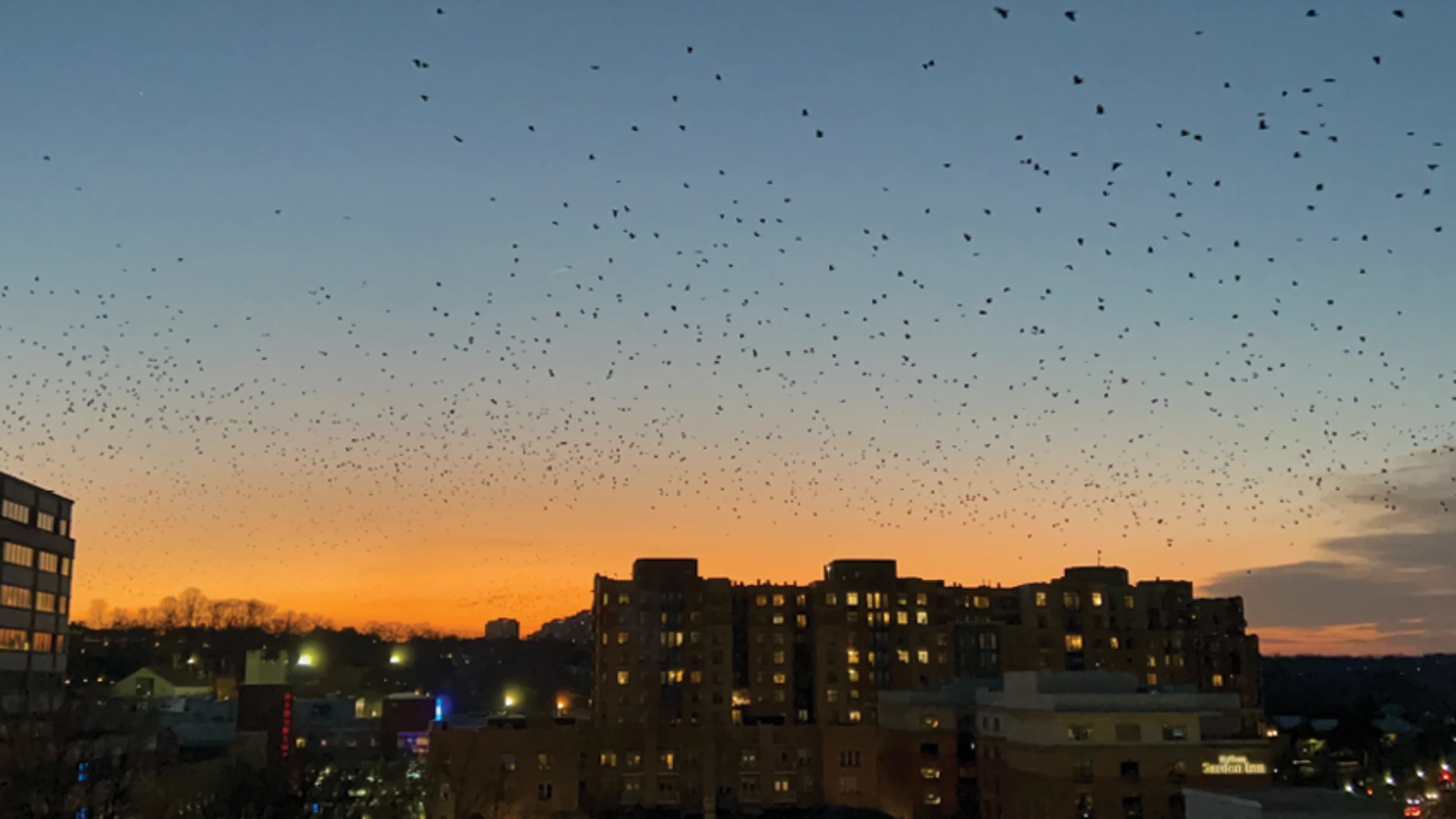Is your cash flow frozen during the slow season? Here's an add-on alternative that helps keep PCOs busy throughout the year.
Most businesses have a slow season, but only a few compensate for their slow season by offering add-on services completely unrelated to what they offer year round. Unless located in the temperate South, winter climates can mean slowing business for pest controllers. Unfortunately, no matter how slow business is, the expenses keep coming. It only seems natural then that businesses find an add-on to supplement slow season revenue. Add-on services can be a scary proposition for PCOs, primarily because it often means a big investment in an unfamiliar area. However, a specific type of add-on is starting to gain a reputation as a safe way to go, as PCOs turn to holiday decor to supplement their services — Christmas lights specifically.
Christmas lights, by only being in demand for a small portion of the year, help fill the void as an add-on service that does not spread your resources too thin year round. And being a seasonal commodity, Christmas lights are only in demand for a scheduled portion of the calendar year. Thus, you know when the season will begin and when it will end, without speculation.
Glenn Scherzinger, Sure Thing Pest Control, Cincinnati, added Christmas lighting to his business three years ago. "I needed some business to keep me going through the winter months — I needed he income stream to keep my employees busy all winter long," he said. "If you have a slow period, it fits well."
Blake Smith, the president and co-founder of Christmas Decor, a Lubbock, Texas-based Christmas lighting franchise, agrees. It’s that revelation that helped lead Smith to franchise Christmas Decor to others looking for add-on potential.
Nearly 16 years ago, while building a landscaping business, Smith first began to see the need for an add-on service to supplement a growing company’s slower seasons.
"We had grown our company to a point where we had some fixed overhead," Smith said. "We were doing some work in some residential high-end neighborhoods and someone asked if we could come put their lights up for them — and I guess a light truly went on at that moment. I thought, ‘We really need to make this a business and see what we can do.’"
In 1986, Christmas Decor was born. "That year we probably did 20 or so projects, but we didn’t know what we were doing," Smith said. "We were doing everything the hard way and it took three or four years to learn and we’re still learning today."
It’s that kind of slow, trial and error learning process that Smith tries to eliminate with others when setting up franchises for other companies. "The reason we franchise it is we knew how successful it made us and we thought, ‘There are more people out there who need to offset their revenues,’" Smith explains. "We went after lawn care companies first because that’s what we knew."
But other service businesses, like pest control, weren’t far behind.
"I saw an ad for Christmas Decor, called and talked to them and based on the time frame they said their work involved, it seemed like it would fit," said Duane Saxton, Paramount Pest Control, Lewiston, Idaho. His company has been a Christmas Decor franchise for more than three years.
"In the winter, our pest control is dropping off and no matter what we do in the way of advertising, when it turns cold, we don’t have bugs to spray," Saxton said. "There were a number of other add-ons we had thought of doing over the years but I took on this with the hope of not only paying for some of the people during the winter, but also turning a profit."
This wouldn’t surprise Smith, who said that Christmas Decor has done the homework to help make a franchise buyer have an easy transition into their new add-on business through a franchise package that includes training, supplies and marketing material. And according to Smith, what you don’t get from Christmas Decor, PCOs probably already have — trucks, ladders, etc.
"You can’t measure all of the profit because you have to consider how much money you are saving in training when you retain an employee," Smith said. "I think in the pest control business, licensed applicators are hard to come by and when you lose one, it’s a very expensive loss and a lot of work to get another one in place."
Travis Freeman, president of Brite Ideas Decorating, Omaha, Neb., offers an alternative to the franchise route by selling distributorships of his company. "It’s the same rules as a franchise," Freeman said, "except that there is no royalty fees and no up-front fees other than what it costs to buy the distributorship."
Brite Ideas started 10 years ago, growing out of Freeman’s lawn and landscape business. He started doing Christmas lighting on the side until it eventually grew into a separate money-making entity. Before long, Freeman and company were not only putting up holiday lighting, but manufacturing their own product as well. Brite Ideas even has capabilities for custom design and is making an effort to expand their decorating to more holidays than just Christmas. According to Freeman they’ve already had great success with Halloween, and even done lighting for Valentine’s Day and St. Patrick’s Day.
"We were making a great product and decorating with it. But we were getting so overwhelmed with phone calls that we couldn’t get enough labor help to accommodate demand. So that’s how it started out," Freeman explains. "We’d say, ‘You can keep your employees on and have a great job for the fall and winter months also.’ We’d manufacture product for them and they would go out and start an add-on business for themselves."
Freeman points to market demand as the reason many PCOs are finding success in Christmas lighting. "It’s about a 45-day window and the profit you can make by keeping those guys that people normally have to lay off is considerable. If you can keep your employees busy and still make money, that’s winning both ways," Freeman said.
So where’s the downside? According to some, the only downside is sometimes meeting demand.
"I’m in my third year of doing this," Scherzinger said. "In my first year, it wasn’t difficult because the timing was good. We were slowing down about mid-November and we stared to pick up a few jobs here and there along the way. I was able to make a pretty smooth transition. Now it’s a little tougher. It’s becoming harder and harder for me to juggle and fit it in because its still a busy time pest control-wise. Instead of looking at this as something I’m starting mid-November, I actually have to start putting up lights and marketing and working now (early spring)."
Speaking of marketing, cross-selling a lighting service to pest control customers may not be as difficult as one would think. Scherzinger said he first tries to market to his existing customer base. "I pass out a lot of fliers and do a little direct mail and door-to-door," he said.
Smith points out how easy it is to build your pest control customer base through this add-on business. "You’re grabbing customers you would have never got and saying to them ‘Hey, I’m also a pest control operator,’ and they are happy with you because you’ve just brought them the spirit of Christmas and they are prime targets for January and March for your core business."
There are other benefits from Christmas lighting, according to Saxton, that have less to do with money and more to do with seeing the fruits of one’s labor. "In the pest control business, it’s hard to achieve an immediate job satisfaction. You spray the house or the yard and you leave and it takes a few days for the results to show, but you’re not there and you don’t get the feedback from the customer," Saxton said. "With this, you put up the lights and you light them and when you walk away that night you can see what you’ve done and there’s immediate feedback from the people."
The author is a writer for GIE Media. He can be reached at wnepper@pctonline.com.

Explore the May 2000 Issue
Check out more from this issue and find your next story to read.
Latest from Pest Control Technology
- OvoControl Now Available in Chile
- Envu Announces Savings Programs for Pest Management Professionals
- Follow the Trail
- Carpenter Ants: Understanding the Bothersome Burrowers
- Massey Services Acquires Insight Pest Solutions of San Antonio
- Target Specialty Products Expands Sales Leadership Team
- Mosquito Joe Promotes David Price to Vice President of Strategic Growth
- Abell Pest Control Recognized as One of Canada’s Best Workplaces in 2025





